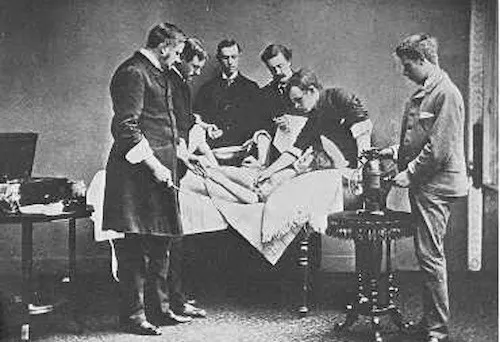Couple of things about polio most people get wrong, especially those who “lived” through it...
https://twitter.com/RBReich/status/1429897492859133960
Polio didn’t “rip” across the globe. It mainly affected first world countries that promoted heavy pesticide use. In fact, the main two countries that experienced infantile paralysis epidemics in the 1800s were the U.S. & Sweden—the two countries that invented their own pesticide.
Iron lungs were incredibly rare. At their peak, there were around 1,100 available in the entire United States (and not many more in other countries). Most people had never even seen one in the 1950s other than newsreels or a field trip to a single iron lung at the local hospital.
Compared to other illnesses, polio epidemics were never that bad. In 1952, the worst year for polio on record (besides a contested 1916 outbreak), polio killed 3,145. Many more died from syphilis (5,719), asthma (6,943), and tuberculosis (21,060). 

People “dutifully” lined up to get polio shots because of massive government/corporate funding of propaganda films and marketing efforts designed to frighten. Without this, most parents wouldn’t have given much thought about polio compared to other illnesses. 

The first Salk polio vaccine to be officially rolled out was plagued with manufacturing problems and ended up exposing tens of thousands of children to the live polio virus, paralyzing nearly 200 and killing at least 10.
Look up the Cutter Incident.
Look up the Cutter Incident.

The program was shut down and it didn’t take the howling of governors or anti-vaxxers. It took common sense from scientists and public health officials who didn’t worship vaccines as the savior of humanity. 

When the vaccine began being used again years later, it became clear it wasn’t working. A sample of 869 polio patients in Detroit revealed only 292 actually had a poliovirus infection. The rest had been diagnosed with polio incorrectly. Something else had paralyzed them.
The second polio vaccine came in the 1960s, well after polio had peaked. The Sabin oral polio actually worked but had a nasty side effect—paralysis. Even death.
The oral polio vaccine is currently the single biggest source of paralytic polio in the world.
The oral polio vaccine is currently the single biggest source of paralytic polio in the world.
Polio has never been eradicated. There are many viruses which cause paralysis in people, typically children, whose guts are made susceptible to catastrophic infections through aggressive pesticide use. The poliovirus is one of many microbes capable of causing paralysis.
“Saving lives” has become political because forced medical procedures, particularly with unknown side effect profiles, is the single most egregious act of violence a government can perpetrate against its people.
There is nothing more despicable.
There is nothing more despicable.
Here's a longer, more thorough thread about all the stuff most people get wrong about polio. It's a fascinating example of things history got wrong:
https://twitter.com/forrestmaready/status/1005127713848463361?s=20
• • •
Missing some Tweet in this thread? You can try to
force a refresh
















